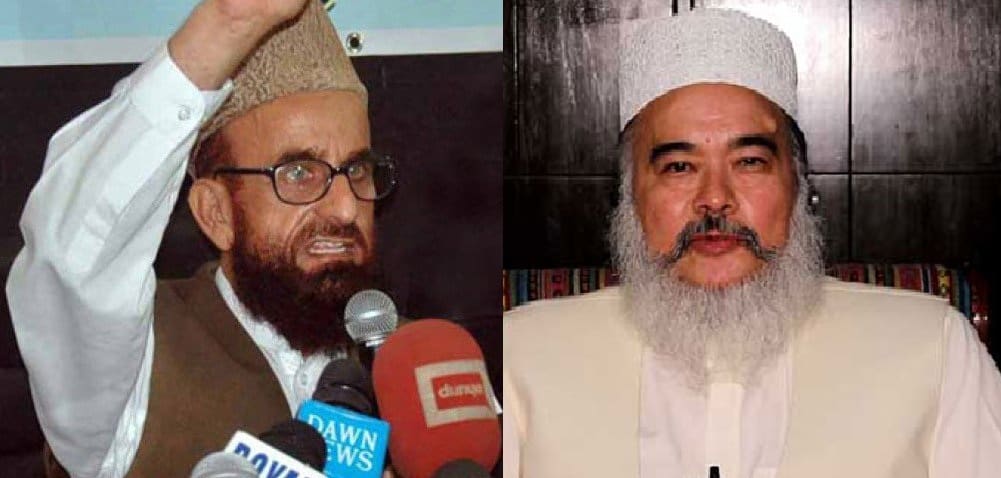Reasons behind two Eids dilemma in Pakistan
Minutes of meeting in which it was decided to change Mufti Muneed Ur Rahman is "Confidential" record.

SAHIWAL: This year too, the dispute of about the Shawwal moon sighting, despite government repeated efforts for the Eid on the same day, ended up in the celebration of two Eids on two different days.
The country, with the combined effort of the PTI-lead federal and Khyber Pakhtunkhwa government for last three years, had witnessed first fast on the same day this year. Last year, Pakistan had celebrated Eid and Ramzan on same day. To eliminate the tradition of two eids and fast, PTI government, in December 2020, removed Mufti Muneebur Rehman, longest-serving chairman of the committee, from the post and replaced him with Maulana Abdul Khabeer Azad, Khateeb of Badshahi Masjid, Lahore.
But this year, the Khyber Pakhtunkhwa government again decided to officially celebrate Eid- a day before the rest of the country- with Masjid Qasim Ali Khan, led by Mufti Shahabuddin Popalzai.
To know about the debate made in the meeting in which it was decided to change Mufti Muneed Ur Rahman, and measures taken to resolve the “Eid Chand” issue, this scribe approached the Ministry of Religious Affairs and Interfaith Harmony (MORAIH) to provide copy of the relevant meeting minutes under the access to information act.
However, the ministry has refused to share the minutes of meeting and stated that the said record is declared as “Confidential” by the Minister in-charge.
MORAIH in its response stated that the requisite documents (minutes of meeting) have been declared as classified by the Federal Minister for Religious Affairs and Interfaith Harmony under Section 7(f) of the Right of Access to Information Act, 2017.”
After the intervention of Pakistan Information Commission, the MORAIH has shared partial information. According to the data provided by MORAIH, total coast of moon sight meeting is about 5 lacs while the chairmanship of Ruet-e-Hilal Committee is an honourly designation and no perks and privileges is given to the chairman by the government but T/A, D/A and barding loading facility on the meetings is provided to each member equivalent to the secretary of the Federal government (BPS 20).
The head of the Ruet-e-Hilal Committee is appointed for period of 3 years. Mufti Munib was appointed as chairman in first in 2001. He enjoyed the longest period of chairman ship from 2001 till 2021. (Duration of 20 years).
When contact, Senior Journalist who covers religious affairs, Sabookh Syed said, removal of Mufti Muneeb Ur Rahman was a political move by Pakistan Tahreek-e-Insaf (PTI) lead government.
He said, Government was unhappy from him after he joined Tahreek Labaik Pakistan (TLP) in their sit-in at Faizabad.
On complaint of this scribe, the PIC passed a detail verdict in which Commission agreed with the stance of MORAIH and declared the record related to minutes of meeting, notes and summary regarding the selection of Moulana Syed Muhammad Abdul Khabir Azad as head of Central Ruet-e-Hilal Committee, confidential.
The PIC order states, the document for the classification of the said record was produced before the Commission in in-camera proceedings. The members of the Commission unanimously decided that the minutes of the meeting, notes and summary in the case are duly classified for sufficient reasons.
Mukhtar Ahmed Ali, Former Information Commissioner, Punjab Information Commission and Executive Director, Centre for Peace and Development Initiative (CPDI) said, Commission has decided in the light of Section 7(f) of the Act, which empowers the concerned Minister to declare any information as classified. So, the Commission has no fault and acted as per law. He, however, said that the Act needs to be revisited and improved as it is violation and against the spirit of Article 19A of the constitution and regional/ international best practice. It is the responsibility of the Government and Parliament to revise the section 7 of the Act.





